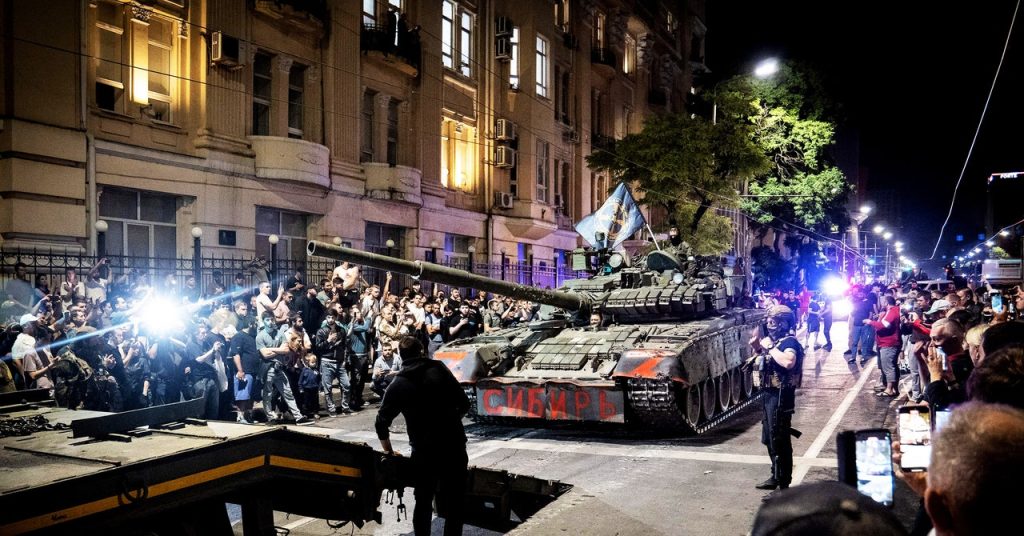On other parts of the app, silence spread through normally vocal accounts. That applied to more conventional propagandists, such as Margarita Simonyan, editor of state TV news network RT. Once a Prigozhin supporter, Simonyan’s Telegram account was quiet on Saturday. Her explanation? She was on a cruise on the River Volga. But parts of the new generation of Telegram influencers were silent too. The anonymous Veteran Notes account, which has 320,000 subscribers, didn’t post as the rebellion started on Friday night—due to circumstances that were “unrelated” to the Wagner rebellion, the account said, without offering explanation.
“We did see silence among some military bloggers who have been playing both sides for the past couple of months,” says Kateryna Stepanenko, a Russia analyst at the Institute for the Study of War, a think tank.
For Wagner-affiliated accounts, such as Call Sign Bruce, run by independent war correspondent Alexander Simonov, the quiet period came later. After a burst of excitement during the mutiny—which involved sharing Prigozhin’s statements and photos from Rostov-on-Don, the city where Wagner briefly took control—the tempo of the accounts’ posts slowed. Simonov has not posted since Monday, June 26.
Until now, these military bloggers have been unified by a shared nationalism, eager for Russia to win the war in Ukraine, and have had an unusual freedom to criticize government decisions. Earlier in June, several Telegram influencers attended a public meeting with Putin for the first time, where they confronted him with questions like, why do talented people in the military struggle to rise to the top? And why are soldiers not receiving payments for tanks that have been destroyed?
But that willingness to criticize may be under threat, experts say. As Prigozhin apparently enters into exile in Belarus, the military bloggers have lost a high-profile ally willing to speak openly about military failures in Ukraine. Yet self-censorship started to creep into this group long before the Wagner mutiny, says Stepanenko. “Rybar used to go on these very long tangents about how much the Russian Ministry of Defence sucks, essentially,” she says, “Now the account posts mostly situational reports from the battlefield.” The failed Wagner rebellion threatens to accelerate this trend, she adds. “It might turn some military blogs to deliberately self-censor to make sure they don’t look or sound like Prigozhin.”
These bloggers have been useful to the Kremlin, says Ian Garner, historian and Russian propaganda researcher. They represent a new blend of citizen-journalism-meets-propaganda. “They give the impression that ordinary citizens are really enthusiastic about the war,” he says.
But there have been signs that Putin wants to bring the voenkory in line. The June meeting was likely an attempt to show the bloggers they are valued and respected, says Garner. “It was part of a wider attempt to bring this fraying and disparate network of info warriors and troops at the front all under the purview of the Ministry of Defence and the state.” Prigozhin’s mutiny may have inadvertently given that effort more leverage.
This new generation of Telegram influencers will be painfully aware that if Putin turns against them, he’ll already have the tools to crack down. In March this year, Moscow tightened its censorship laws, meaning anyone “discrediting” the army can be punished with up to five years in prison. By May, 80 people had been prosecuted under the new rules, according to human rights group OVD-Info. So far, the law has only been used to target bloggers who oppose the war—not those who support it.
Read the full article here






